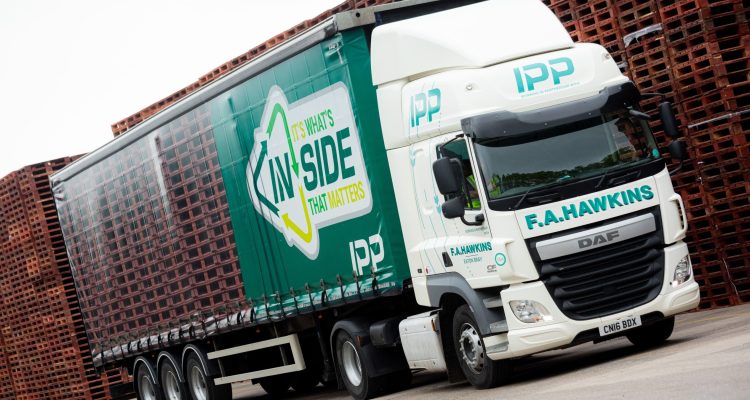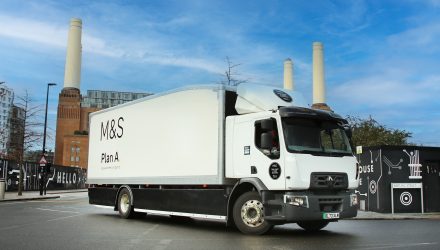Major initiatives are needed to tackle stalling progress on reducing the number of lorries running empty in the UK, according to leading supply chain business IPP.
Figures analysed by pallet pooler IPP reveal efforts to tackle empty running – the environmentally-harmful process where a vehicle returns from a delivery with no payload on board – is flatlining in the UK.
Statistics published by the Department for Transport from the last three full years (2022, 2023 and 2024) show that one in three kilometres travelled by UK lorries involves an empty vehicle, compared to equivalent data published by Eurostat which shows an average of one in four in Europe.
Overall empty running rates sit at 30 per cent across the same time period and are not reducing, with a staggering 57.9 bn kilometres driven by empty vehicles in the UK in that time.
IPP is one of a small number of global businesses engaged in the circular economy, via its production of sustainable wooden pallets for FMGC supply chains which are sorted, repaired, reused many times over and then recycled at the end of their useful lives.
By collaborating with its customers to backfill empty legs of journeys, IPP has taken 4.5 million unnecessary miles out of UK supply chains over the same three-year period, saving 7,634 tonnes of unnecessary carbon emissions.
But Alia Tabbassum, strategic logistics manager at IPP UK&I, says the UK should be going much further to tackle the issue.
She said: “I’ve been in the industry for 20 years plus and while governments acknowledge the problem of empty running, we never see initiatives to try and reduce it. We need a sustained campaign from our governments to tackle this issue because circular businesses like IPP can’t tackle it on their own.
“The reasons for progress flatlining is because in the UK, we are heading towards the US system where everyone wants something straight away – think of Amazon and their same-day orders. We’re increasingly seeing the same with HGVs.
“Both customers and retailers can be very demanding when it comes to return logistics, often imposing restrictions around delivery times, vehicle types, load sizes and waiting times.
“These measures are usually intended to minimise their own resource requirements and costs on an activity that doesn’t directly generate profit – even though it does indirectly.
“However, such restrictions often create an environment of inflexibility and inefficiency, which in turn are the very factors that prevent vehicles from running as full and therefore contributing to empty running.”
Alia said the situation in Europe is very different, with larger logistics networks aligned to stricter regulations for drivers.
She said: “Europe has larger freight networks and a better network of freight forwarders.
“When you look at somewhere like Denmark, which is the leading European nation in cutting empty running, they have a better road management system, a better road network and a better use of smart technologies.”
Alia said another option to cut carbon emissions is HVO (Hydrotreated Vegetable Oil) – a renewable, fossil-free diesel alternative which can be produced from waste cooking oil, animal fats or non-food crops.
She said: “HVO requires no cost in adapting vehicles, but without government support, companies simply won’t do it as it currently costs between 15 and 18 per cent more than diesel. HVO is a simple and effective way to cut carbon emissions by around 85 per cent but if there is no push from governments or grants made available, it won’t happen.”
IPP collaborates closely with its customers to reduce empty running, by analysing where they are delivering freight and how it can support them.
One such example is Salisbury Poultry, a West Midlands-based supplier of fresh and frozen poultry.
By enabling it to backfill return legs, IPP has helped Salisbury Poultry cut 46,086 unnecessary miles and 78 tonnes of unnecessary Co2 emissions from its supply chain since the collaboration began in July 2023.
Manoj Chohan, from Salisbury Poultry, said: “When we deliver our products to the retailers, we work with IPP to collect empty pallets from the same delivery location and return them to Salisbury Poultry.
“We then re-use those pallets for future customer deliveries. This means there is no empty mileage on any of these delivery runs.”







